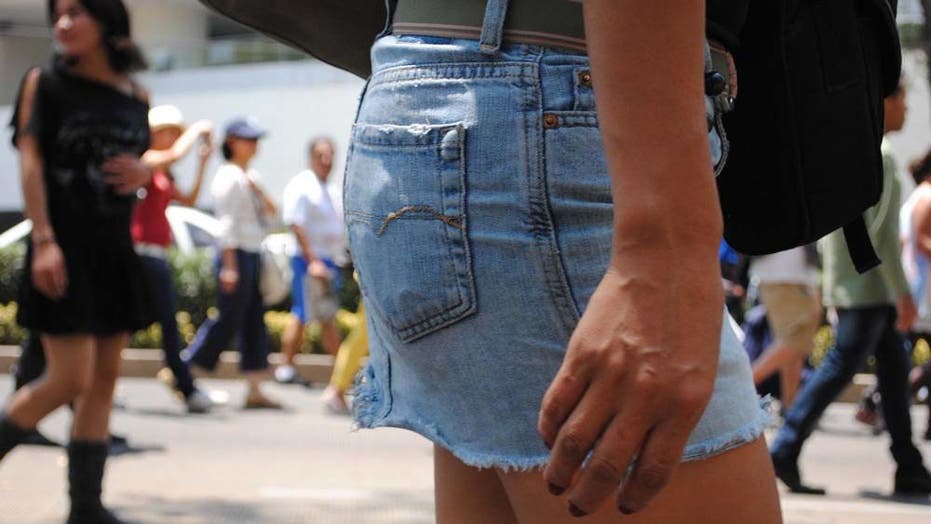Hundreds of scantily clad women marched this city on Sunday to protest the blame and shame assigned to victims of unwanted sexual attention or assault.
The women took to the streets in fishnet stockings, short skirts and tall heels carrying placards reading “My body is mine!” and “No means no!” Dozens of men participated, too.
“We are demanding respect from men,” said Veronica Martínez, 35, who marched with her 13-year-old daughter, also named Veronica.
Demonstrators, who organized largely over social media, said they were protesting a pervasive macho culture that too often faults women for aggressions against them.
This, in a country where the mayor of a small west coast town recently proposed banning miniskirts to prevent teen pregnancy, and in a city where hit-and-run spankings of women are not uncommon.
Despite progress, vestiges of misogynism remain evident even in Mexico’s penal code.
According to Mexico City’s Human Rights Commission, in populous Mexico state, which surrounds Mexico City, sex with a female minor under the age of 18 is a punishable crime but charges cannot be brought against the perpetrator if he decides to marry the victim. In a similar vein, rape of a minor is punished with six months to four years in prison—a lighter sentence than that attached to stealing a cow or goat.
Laws permitting more lenient punishments for “honor killings” of women are still on the books in several states.
In one case, lawmakers in Jalisco state in May are debating eliminating an “honor killings” law—which assumes that adultery is a justification for murder. In that state, an “honor killing” carries a sentence of six to 12 years in prison versus a minimum of 12 years and maximum of 18 years for “regular” homicide.
Also in May, the mayor of Navolato, Sinaloa, proposed banning miniskirts as part of a policy to prevent teen pregnancy.
The mayor, Evelio Plata Insunza, was quoted in Mexico’s Milenio newspaper as saying the proposal represents “a political responsibility for us to take a look at the problems that afflict society.” The proposal is expected to be reviewed at the state level, as well.
At the march, men and women of all ages paraded down Mexico City’s wide Reforma Avenue. Some wore cocktail dresses and heels; others dressed for the heat and long walk in shorts and sneakers. Many tattoed their arms and legs in lipstick with the march’s central message: “No is no.”
“There is no reason why I should suffer an aggression for the simple reason of how I’m dressed,” said Guadalupe Martínez, a 34-year-old academic who, for the occasion, wore a yellow minidress.
Men grab her constantly on public transportation, on the train and on buses, she said.
“We live it every day,” she said.
The inspiration for the march came from a “Slut Walk” in Toronto earlier this year, spawned by a Toronto police officer’s advice to female students at York University that they avoid dressing like “sluts” in order to prevent sexual assault. Similar events have been held in Boston and London since then.
Lauren Villagran is a freelance journalist in Mexico City.
Follow us on twitter.com/foxnewslatino
Like us at facebook.com/foxnewslatino

